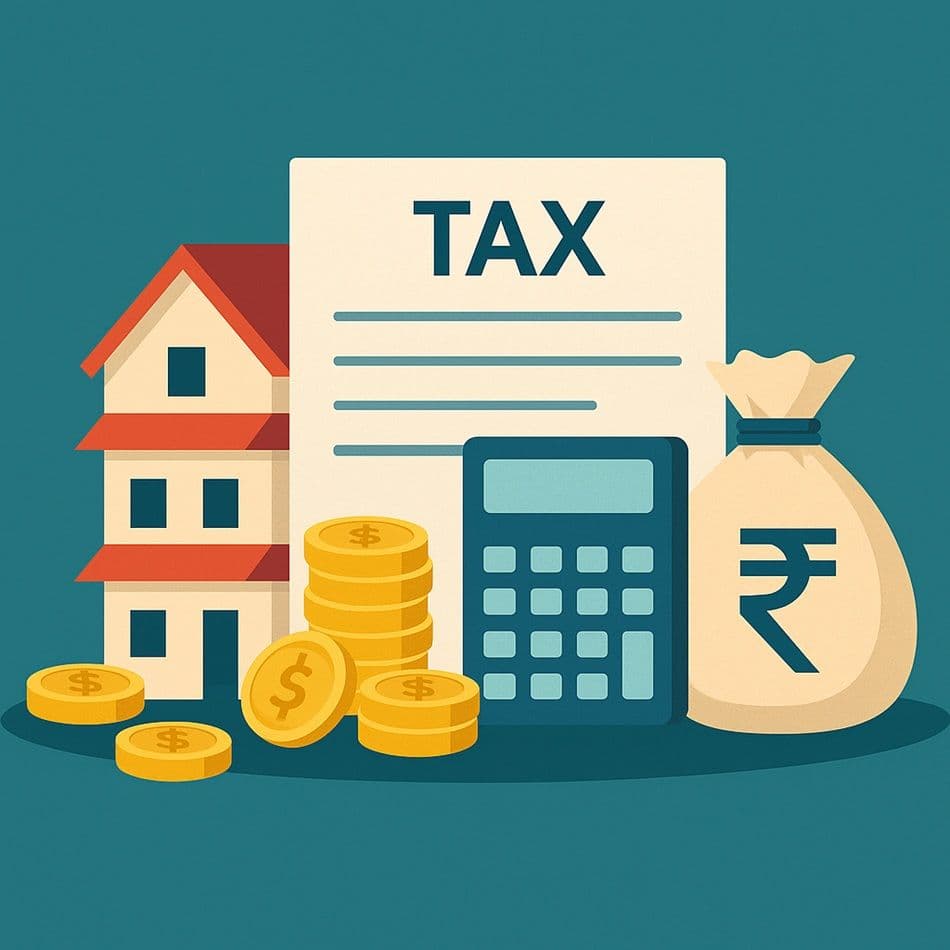Ask GRAI Anything
Your Real Estate Questions, Answered Instantly via Chat


Help us make GRAI even better by sharing your feature requests.

Real estate is more than bricks and mortar - it’s one of the most underutilized wealth-building tools for high-income professionals in India. While most investors focus on price appreciation or rental yield, the real alpha lies in optimizing your tax position.
In this article, we decode the most powerful real estate tax strategies available to Indian taxpayers as of FY 2025–26. If you earn upwards of INR 20L/year or are looking to rebalance your investment portfolio, these tools could save you lakhs - legally.
Disclaimer: This article summarizes provisions under Indian tax law as of FY 2025–26. Please consult a qualified CA for advice tailored to your situation.
If you own residential property financed through a loan, this is your first and most powerful tax shield.
Self-Occupied Property: Deduction up to INR 2L/year for interest paid on home loan.
Let-Out Property: Full interest is deductible, but only INR 2L/year can be set off against other income. Excess loss is carried forward for 8 years (to adjust only against house property income).
Joint Ownership: If you and your spouse are co-owners and co-borrowers, you can each claim INR 2L - doubling your benefit to INR 4L/year.
Smart Move: Consider a second property as an investment to maximize this benefit if you're nearing your 2L cap on your primary home.
Deduction of up to INR 1.5L/year on principal component of home loan EMI.
Stamp duty and registration charges also qualify (one-time) within that limit.
Note: Section 80C includes other instruments like PPF, ELSS, life insurance, etc.
Tip: Ensure your home loan certificate from the bank clearly separates interest and principal for smooth filing.
Selling a property or long-term asset? These sections help you avoid paying 20% LTCG tax, if you reinvest smartly.
Section 54: Applies when you sell a residential property. Exemption if you reinvest in another residential property within stipulated timelines.
Section 54F: For LTCG from non-residential assets (e.g. land, shares) reinvested into a residential property.
Post-April 2023, a cap of INR 10 crore applies to both sections. Anything above this is taxable.
Wealth Hack: This is a favored strategy among HNIs rebalancing portfolios or downsizing from older, larger properties.
Many salaried professionals miss this opportunity:
If you own a home in one city but rent in another, you can claim both HRA and home loan deductions.
If you live in a rented home despite owning a property, a strategic evaluation can help decide whether to continue renting or shift.
The new tax regime (Section 115BAC) removes most exemptions, but in the old regime, this planning can save tens of thousands annually.
Many taxpayers blindly choose regimes without modeling both. Use GRAI Real Estate AI Advisor to simulate both regimes based on your actual income and expenses.
Pre-construction interest: Can be claimed in 5 equal installments starting the year construction is completed.
Joint loans with parents/siblings: Can boost tax benefit pool while optimizing family finances.
Second home as a rental: Converts your unused asset into a tax-deductible income stream.
Must Read: How U.S. High-Income Investors Use Real Estate Tax Strategies to Build Wealth Faster
High-income earners often:
Overpay for underperforming assets (e.g., "super built-up" traps)
Miss out on deductions due to poor loan structuring
Underutilize capital gains exemptions at sale
Don’t account for future resale or rental marketability
This is where GRAI Real Estate AI Advisor comes in.
Using local data + national tax rules, GRAI helps you:
Project net after-tax ROI for any property
Compare buy vs rent decisions with full tax logic applied
Find properties that better optimize deduction and resale outcomes
Plan around your income slab, ownership structure (individual, joint, HUF), and property type
“How much tax can I save on a INR 1.2Cr home loan as a joint owner in Bangalore?”
“Should I buy or rent a 3BHK in Noida if I earn INR 40L/year?”
“How to minimize capital gains tax if I sell my Mumbai apartment in FY25?”
Also Read: How Indians Can Use AI to Value Property in 2025
If you're earning INR 30L+ a year, your single biggest property ROI lever is likely tax-driven - not just appreciation or rent.
The Indian tax system rewards structured real estate ownership. You just need the right insights to unlock it.
Start using GRAI to simulate tax savings, run buy vs rent comparisons, and unlock smarter wealth-building through property.
Try GRAI at internationalreal.estate.
Coming Soon: Tax strategy guides for UAE, Singapore, Australia and Europe